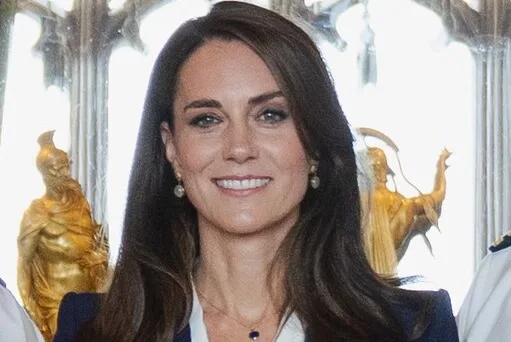The Princess of Wales’ uncertain appearance at trooping the colour amidst cancer treatment prompts reflections on the significance of royal presence and duties
As preparations for Trooping the Colour, a revered event in the Royal calendar, unfold, the possibility of Princess Kate Middleton’s absence casts a shadow over the grand affair. Scheduled for July 15th, this year’s Trooping the Colour could witness a departure from the customary spectacle, with the iconic Buckingham Palace balcony potentially adorned with fewer members of the Royal Family.
Kate Middleton, the 42-year-old Princess of Wales, is currently undergoing preventative cancer treatment, leading to uncertainty regarding her attendance at Trooping the Colour. While Kensington Palace has not confirmed her presence, there remains a possibility of her making an appearance if her health permits. Notably, Kate will not participate in the final dress rehearsal for the King’s birthday celebrations on June 8th, as confirmed by palace sources.
Embed from Getty ImagesIn line with recent protocols, it is anticipated that only working royals will join King Charles for the culmination of his birthday festivities. This exclusion could extend to younger members such as Princesses Beatrice and Eugenie, along with Prince Harry and Meghan Markle, who are currently residing in California.
Dr. Tessa Dunlop, a prominent royal historian, contends that Kate Middleton’s potential absence should prompt a reevaluation of the roles of non-working royals within the Firm. With the spotlight on the more “loyal” family members, Dr. Dunlop suggests that this moment presents an opportunity for individuals like Princesses Eugenie and Beatrice to step into the forefront of royal duties.
Reflecting on the evolving dynamics within the Royal Family, Dr. Dunlop emphasizes the significance of Kate Middleton’s absence at Trooping the Colour. While acknowledging the necessity of prioritizing health amidst Princess Kate’s cancer treatment, Dr. Dunlop underscores the void her absence would create at the iconic event. Noting the transformative nature of royal engagements over the years, Dr. Dunlop highlights the symbolic importance of Kate Middleton’s presence, particularly in her role as a captivating figure representing British royalty.
Analysis:
Political Impact: Kate Middleton’s potential absence underscores the evolving landscape of royal engagements and duties, prompting discussions about the relevance of non-working royals in contemporary monarchy. This development may influence future decisions regarding royal participation in ceremonial events and public appearances.
Social Reflection: The speculation surrounding Kate Middleton’s attendance at Trooping the Colour reflects broader societal concerns about health, wellness, and the responsibilities of public figures. Her potential absence serves as a reminder of the human aspect of royalty and the importance of prioritizing personal well-being above ceremonial obligations.
Psychological Aspect: The uncertainty surrounding Kate Middleton’s participation may evoke mixed emotions among royal enthusiasts, highlighting the psychological impact of royal engagements on public perception and sentiment. Her potential absence could spark curiosity, concern, and reflection on the role of individuals within the Royal Family.
Sociological Angle: Kate Middleton’s absence from Trooping the Colour prompts discussions about the changing dynamics within the Royal Family and the shifting roles of its members. This development underscores broader sociological themes related to tradition, duty, and familial expectations within the context of monarchy.Fashion Culture: While not directly related to fashion, Kate Middleton’s absence may influence discussions within fashion and lifestyle circles about the significance of royal presence at ceremonial events and its impact on cultural perceptions of style and elegance.
